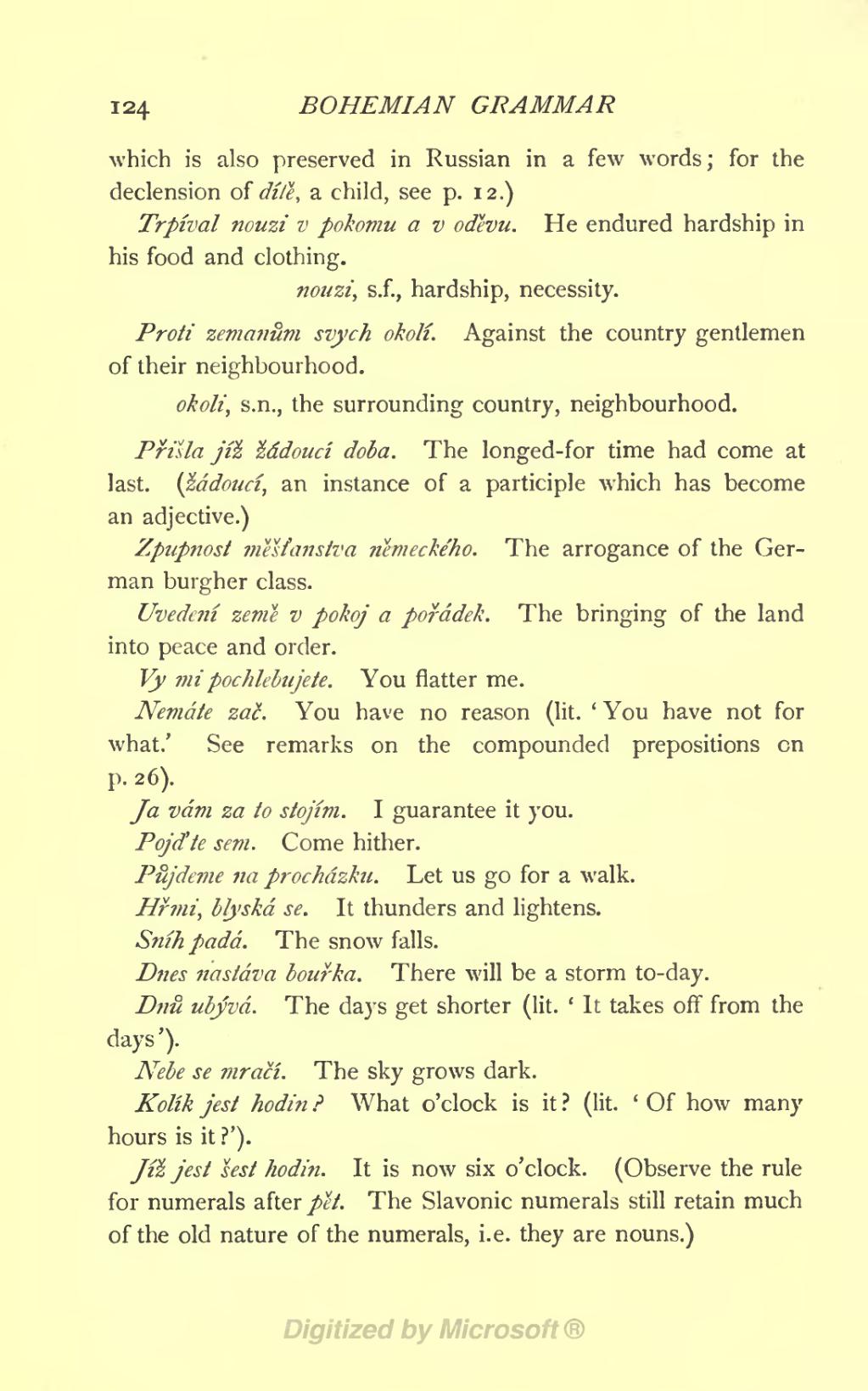which is also preserved in Russian in a few words; for the declension of dill, a child, see p. 12.)
Trpíval nouzi v pokomu a v odivu. He endured hardship in his food and clothing.
nouzi, s.f, hardship, necessity.
Proti zemanům svých oholí. Against the country gentlemen of their neighbourhood.
okolí, s.n., the surrounding country, neighbourhood.
Přišla jíž Žádoucí doba. The longed-for time had come at last, (žádoucí, an instance of a participle which has become an adjective.)
Zpupnost měšťanstva nlmecke'ho. The arrogance of the Ger- man burgher class.
Uvedení zemi v pokoj a pořádek. The bringing of the land into peace and order.
Vy mi pochlebujete. You flatter me.
Nemáte zač. You have no reason (lit. ' You have not for what.' See remarks on the compounded prepositions on p. 26).
Ja vám za to stojím. I guarantee it you. Pojďte sem. Come hither. Půjdeme na procházku. Let us go for a walk. Hřmi, blýská se. It thunders and lightens. Sníh padá. The snow falls.
Dnes nastává bouřka. There will be a storm to-day. Dnů ubývá. The days get shorter (lit. ' It takes off from the days').
Nebe se mračí. The sky grows dark.
Kolík jest hodin ? What o'clock is it ? (lit. ' Of how many hours is it ?').
Jíž jest šest hodin. It is now six o'clock. (Observe the rule for numerals after pit. The Slavonic numerals still retain much of the old nature of the numerals, i.e. they are nouns.)
